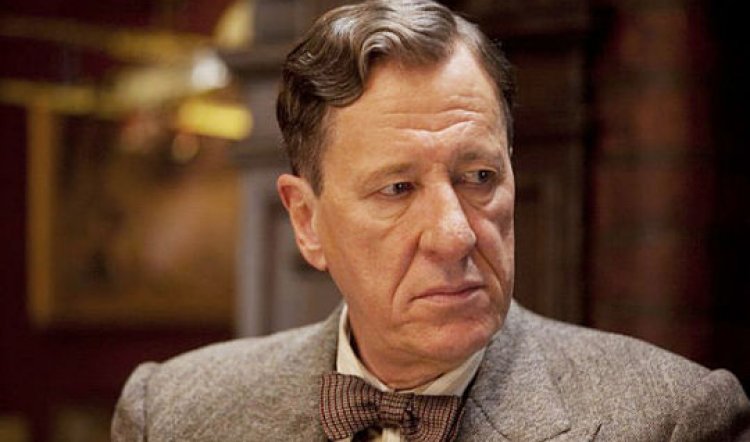
MOVIES WITH SUSIE E
Renowned film critic, commentator and media academic SUSIE EISENHUTH joins stagenoise.com – so join us and find out even more about what’s going on and what matters
IT'S NOT exactly news that the Golden Globes are odd, and iffy; an excuse for a lushly televisual celebrity knees up, a high end if vaguely low rent vehicle for hyping expectations for the more up market Oscars and their box office bounty. Nor that the Hollywood foreign press corps that hosts the Globes is itself a bit odd, and iffy, its voting members long established in the PR firmament as the junketmeisters of the universe. But somehow, in the glare of today’s unblinking multi-platform media gaze, the fact that the Golden Globes are so dreadfully tinny is just that much more obvious than it used to be.
Among the odd and iffy features this year is the stand-out dodgy decision to nominate in two of the “Best of” acting categories the breathtakingly bad The Tourist; a film whose most remarkable feature would have to be shared line honours between the fact that Johnny Depp and Angelina Jolie agreed to be in it and that it got made at all.
But so what if they sleepwalk (Depp) or stride with purpose (Jolie, reprising by rote trace elements of her way superior action movie persona) through this sorry affair? What matters here is that these are A List celebrities and contriving their appearance at the Globes is all about amping up the pulling power of a star strewn telecast.
Another oddity this time round is the nomination of Geoffrey Rush as Best Supporting actor for The King’s Speech, for a role in which he not only shares top billing with Colin Firth but delivers one of the all time great screen characterisations as Lionel Logue, speech therapist to King George VI. In a point perfect performance that masterfully demonstrates the power of understatement (as opposed to his trademark flamboyance) and impeccable timing, Rush gives us Aussie-born Logue as a brisk, self-possessed chap whose unfailing good humour comes complete with steely resolve, which makes him a perfect counter for his royal client, so baffled and uncertain in the face of life’s demands.
Firth for his part does a fine job of sustaining the distracted and vaguely hunted demeanour with which he depicts the stammering King George, his every utterance a cliff edge to teeter on. The real feat for Firth, apart from essaying such a convincing stammer, is to show us how the ever present stress of merely speaking, on top of the public role the king can’t abide anyway, makes him from time to time – as nice a bloke as he is (and as shamefaced about bad behaviour) – more than a mite cantankerous.
That the central characters are so effectively humanised is one of the agreeable surprises in a film which, given the gravity of the backdrop, might easily have gone down the stirring, inspirational track and suffocated itself in the corsetry of historic trappings.
This a rare chance to see two gifted performers playing off each other with intelligence and verve, their interplay orchestrated by a standout script from David Seidler, which is anchored in the palpable empathy he felt for the central dilemma that drew the him to the story, having himself endured a childhood stammer.
In terms of honours, the only reasonable resolution for this observer would be – forget the Globes – a shared Best Actor win for Firth and Rush in the Oscars. (And make that an Oscar for Seidler in the screenwriting category as well.)
Helena Bonham Carter shines here too amid the rollcall of acting royalty in support roles (including Derek Jacobi and Michael Gambon), in her Globe and surely Oscar-nominated role as George’s wife Elizabeth. An old hand at aristos, Bonham-Carter and her deliciously light touch in the role of the Queen (better known for more than half a century as the Queen Mum), is a key element in the warmth that underpins this film’s appeal, upper crust to the bone but with a sense of fun and a natural charm which lamentably, does not seem to have survived in the current gene pool.

The only downside of Bonham Carter’s finely judged performance is that it makes her a tough competitor for our gal Jacki Weaver, who richly deserves her Globe nomination for summoning up the alarming mix of chirpy and stone-cold vile with which she invests her den-mother-from-gangland-hell in Animal Kingdom.
Elsewhere, in Globe and undoubtedly Oscar contention, Blue Valentine, like The King’s Speech, is essentially a character study and the real value is in the performances, with Best Actor nominees Michelle Williams and Ryan Gosling both impressive in difficult and exposing roles that require up-close emotional intensity and considerable courage.
It’s a heartache of a film, this one, because it manages to engage us so totally in the winding down of the relationship of a young married couple whose sweetly romantic get together we have witnessed. The film’s strategy is to keep on playing the promise of the past against the fracture lines of the present, so we’re shifting all the while between the sense of discovery as they come together – and the humdrum numbness of the present just a few years down the track. These days they are going through the motions, not altogether unhappy, not altogether sad, but only because they haven’t really stopped to think about it ¬ and if they did they would be both.
Director Derek Cianfrance offers a very different take on boy meets girl storytelling, and while it makes for magic moments, the impressionistic style is not without risks. Because what we’re seeing are glimpses, the context is inevitably limited, and the switch to and fro can be dislocating and unsatisfying at times. But, at the same time, it is oddly compelling to try to make sense of the decline, as the young couple tries to do on one last weekend away together.
The plaintive ukelele tune with which the heart-on-sleeve Gosling woos the more wary Williams – a less than loving family life hasn’t inclined her to rose-coloured specs – is likely to hang around in your mind long after this movie is over: “You always hurt, the one you love…” As does the central conundrum. No real answers doesn’t make for your classic feel good movie outcome of course, but it’s a feeling and thinking takeaway on offer here, which is not a bad thing. This filmmaker is interested in peeling back the layers of real life romance and homing in on realities – and Gosling and Williams track the melancholy trajectory all the way home. From all accounts, the film took several years to come together for Gianfrance. If he hurries along a bit, we’ll hopefully be hearing from him again soon.
Minimal is not in the vocabulary of Black Swan, the other big Globe nominee releasing here in the run up to the Oscars, which is more your nothing-succeeds-like-excess kind of movie. Hyper is the word. Hyper-glossy and gorgeous (delicate, feathered swans hovering en pointe in the spotlight’s glare). Hyper-dramatic (wicked black swans stalking about in the wings with mayhem in mind/ ditto variously deranged ballerinas). And above all, hyperventilating, which is not just the style of the film but a constant requirement for Natalie Portman’s hyper-twitchy ballet star, whose brilliance is fatally flawed by the fact – as we see from the start in her mini blips of mania – that she is several pirouettes short of a corps.
The doom-laden scenario establishes early on that something wicked this way comes. And given Portman’s panic-stricken demeanour – along with the film’s careful spelling out of the ballet storyline (White Queen to Black Queen) – it comes down to waiting for the inevitable violent collision between her obsessive quest for perfection and her increasingly crazed conviction that dark forces are ranged against her. Signs meanwhile, could, for economy, have been appended to the characters: mean, spiteful, jealous, sexy, bitchy, etc.
Natalie Portman is one of those gifted young actors whose presence in a cast brings you to a movie with real anticipation. Her co-star in this film, Winona Ryder, (cast, ironically, in a minor part as a sidelined star) was a similar draw card until she moved from the big screen to the gossip glossies. But while Portman’s dedication and discipline is always apparent in this demanding role, she is hampered, like the film itself, by the fact that the thermostat is always turned up to the max. Overheated drama inevitably gives way to melodrama and the melodrama itself is finally K-O-ed by a slide into pure horror. Goodness me.



